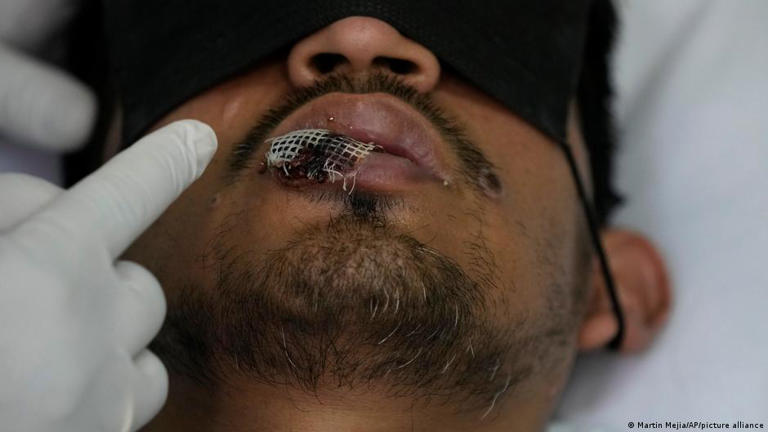The World Health Organization (WHO) has issued a warning that mpox, a viral disease that causes painful blisters and sores on the skin and mucous membranes, could spread around the world again, as sexual transmissions accelerate in Africa.
Mpox, formerly known as monkeypox, was first identified in humans in 1970 in the Democratic Republic of Congo (DRC). It has been endemic for years in several West and Central African countries, where outbreaks often began when the virus was transmitted to humans from infected animals, such as monkeys, rodents, or squirrels.
However, in 2022, the WHO declared mpox a public health emergency of international concern, as the disease spread rapidly in the third year of the COVID-19 pandemic, when awareness of public health was at a maximum. The global outbreak, which affected more than 90,000 people and killed 140, mostly spread through sexual contact, as the virus can be found in the saliva, blood, semen, and vaginal fluids of infected people.
In May 2023, the WHO downgraded mpox from a global threat, as the number of cases and deaths declined. However, on December 15, 2023, the WHO warned that an epidemic of mpox in the DRC could spread internationally again, as a rise in sexual transmissions had been detected.
According to the WHO, there are more than 13,000 suspected cases of mpox in the DRC, with more than 1,000 cases per month, and up to or more than 600 deaths so far. The WHO said it was concerned about further international transmission from the DRC, as the country has porous borders and weak health systems.
The WHO also said that there are ongoing outbreaks of mpox in Asia, where the virus was introduced by travelers from Africa. Japan, Cambodia, Indonesia, Vietnam, and China have reported cases of mpox, and Japan has recently reported its first fatality from the disease.
The WHO urged countries to strengthen their surveillance and response capacities, and to raise awareness and prevention measures among the public, especially among people who have sexual contact with people from affected areas. The WHO also advised travelers to avoid contact with sick or dead animals, and to practice safe sex or abstain from sex with people who have symptoms of mpox.
Mpox is a serious and potentially fatal disease, but it can be prevented and treated. There is no specific treatment or vaccine for mpox, but supportive care and antiviral drugs can help reduce the severity and duration of the illness. The symptoms of mpox include fever, headache, muscle ache, swollen lymph nodes, and a rash that develops into blisters and scabs. The disease can last from two to five weeks, and can leave scars or disfigurement.
The WHO said that mpox continues to pose significant public health challenges that need a robust, proactive, and sustainable response. The WHO said it is working with its partners and affected countries to contain the outbreaks and prevent further spread of the disease.
Sources:
https://www.msn.com/en-in/health/other/who-warns-mpox-could-spread-around-the-world-again/ar-AA1lGaC9 WHO warns mpox could spread around the world again
https://www.dw.com/en/who-warns-mpox-could-spread-around-the-world-again/a-67754081 WHO warns mpox could spread internationally again – MSN
https://www.msn.com/en-za/news/other/who-warns-mpox-could-spread-internationally-again/ar-AA1lGjrm WHO warns DR Congo mpox epidemic could spread internationally – MSN
https://www.msn.com/en-xl/health/other/who-warns-dr-congo-mpox-epidemic-could-spread-internationally/ar-AA1lCqPX Monkeypox declared global health emergency by WHO as cases surge …






